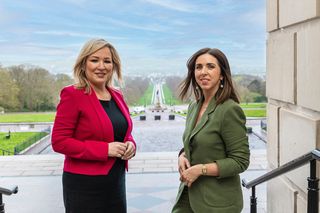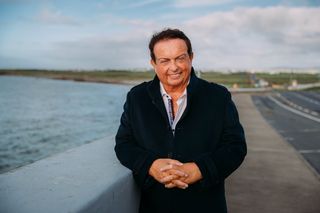HSE to test for dangerous new drugs in ‘safe spaces’ at music festivals this summer
Stock image
Trained HSE volunteers will be on hand at music festivals this summer to test for potentially dangerous drugs and to help festivalgoers experiencing drug emergencies, as they warned new and more dangerous drugs continue to emerge on the black market.
Following on from a pilot project at last year's Electric Picnic, the HSE and a number of popular music festivals will take part in the HSE's Safer Nightlife programme this summer.
Trained volunteers will take part in a "back of house" initiative in which drugs can be checked for adulterants, toxicity and other concerns through the use of surrender bins, media awareness and a social media campaign.
They will be on hand to educate people on drug risks and trends of drugs in circulation as well as to support people experiencing drug emergencies and prevent overdoses.
"With hundreds of thousands attending festivals across Ireland this summer, the HSE wants people to stay safe. The message is clear; it is always safer not to use drugs at all. But we need to acknowledge that festivals can be risk-taking settings where people may try drugs for the first time or try new types of drugs,” according to the HSE.
Prof Eamon Keenan, HSE’s national clinical lead for adiction services, said one of the aims of the drug checking service is to identify "drug market trends of concern”.
"This approach will improve our drug monitoring capabilities and help to tailor our harm reduction services in Ireland. Through a ‘back of house’ approach we can access drugs in a safe, non-judgemental manner to quickly gain insight on what drugs may be in circulation and issue real time drug alerts about substances of concern to festival attendees via our social media channels,” he said.
“As shown at the first phase conducted at Electric Picnic last summer, this approach has the potential to identify trends otherwise unknown. The HSE found trends of concern including high potency drugs, 12 new psychoactive substances and four drugs which had never been identified before in Ireland.”
Prof Keenan said the HSE was working with the Gardaí to guarantee that medical tents are safe spaces in which people can talk about their drug use and consider surrendering drugs.
"The HSE and Gardaí will work closely on operational plans to ensure the ‘back of house’ drug monitoring can be conducted for harm reduction purposes and that the surrender bin areas can be used safely by people attending the event,” he said.
Prof Keenan said there were constantly new drugs emerging which were causing concern.
“As well as high strength drugs appearing, as seen recently in the UK, we are currently concerned about the possibility of new psychoactive substances being mis-sold as MDMA pills or crystal, cocaine and cannabis,” he said.
"New drugs are continuing to emerge and we must be aware of the risks they pose, in particular the risks of overdose and mental health problems. While the HSE recognises that it is safer not to use drugs at all and there is always risk, the campaign has been developed in response to a changing drug landscape in Ireland and aims to offer people who use drugs practical harm-reduction information on how they can reduce health harms if they choose to use.”
Nicki Killeen, Emerging Drug Trends Project Manager, HSE said: “We currently have a number of concerns regarding the contents of drugs. We want to know if drugs contain harmful adulterants, if new drugs are in circulation or if something poses an extra risk due to its strength. We found six similar MDMA skull pills last summer that varied from containing 36mg-235mg of MDMA, which shows that people can never be fully sure of the contents and pills can vary even from the same batch.”
She said the HSE was also concerned about the emergence of new drugs such as synthetic cathinones in stimulants and synthetic cannabinoids which could be sold as cannabis, vape or edibles.
Join the Irish Independent WhatsApp channel
Stay up to date with all the latest news















